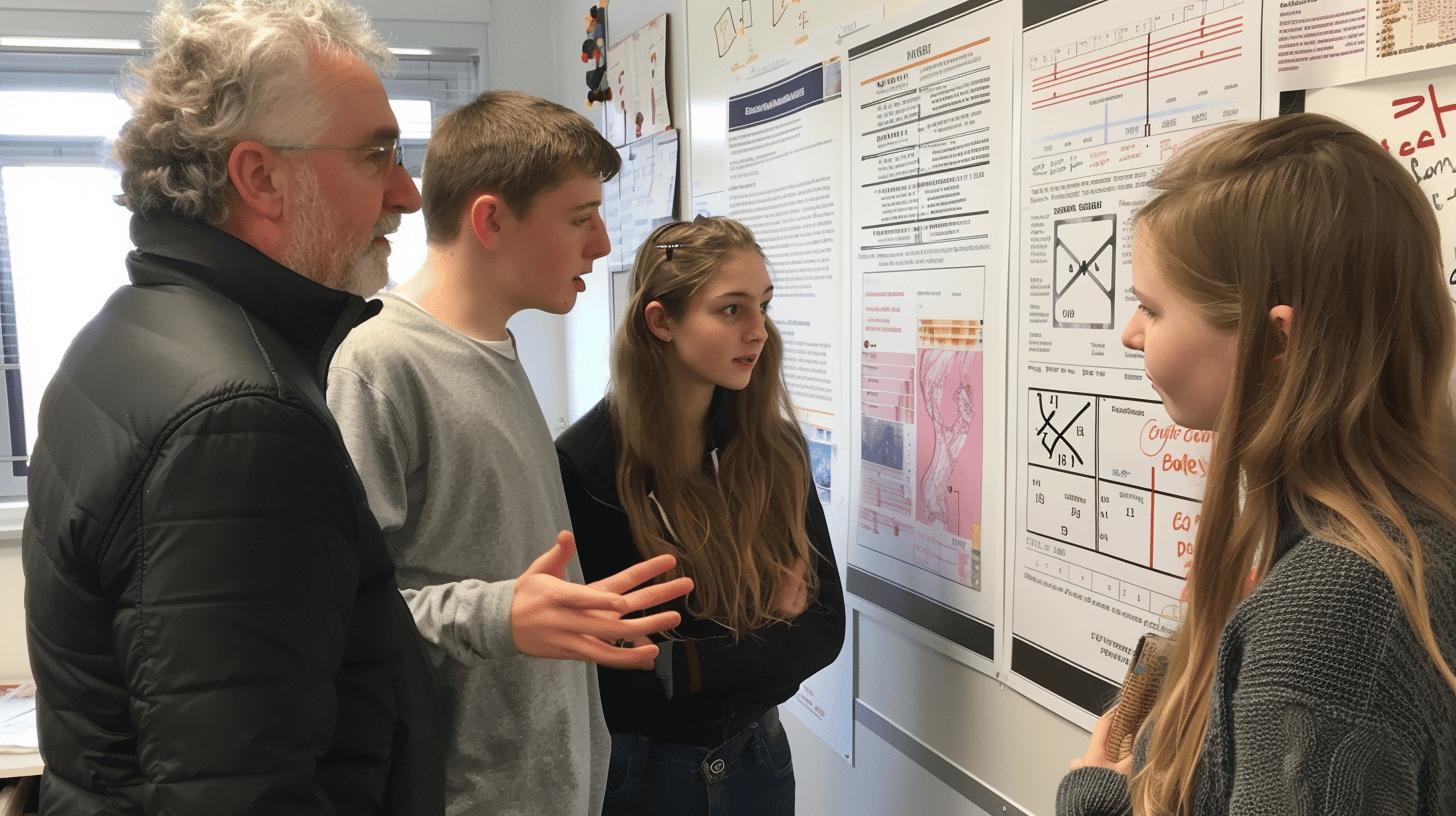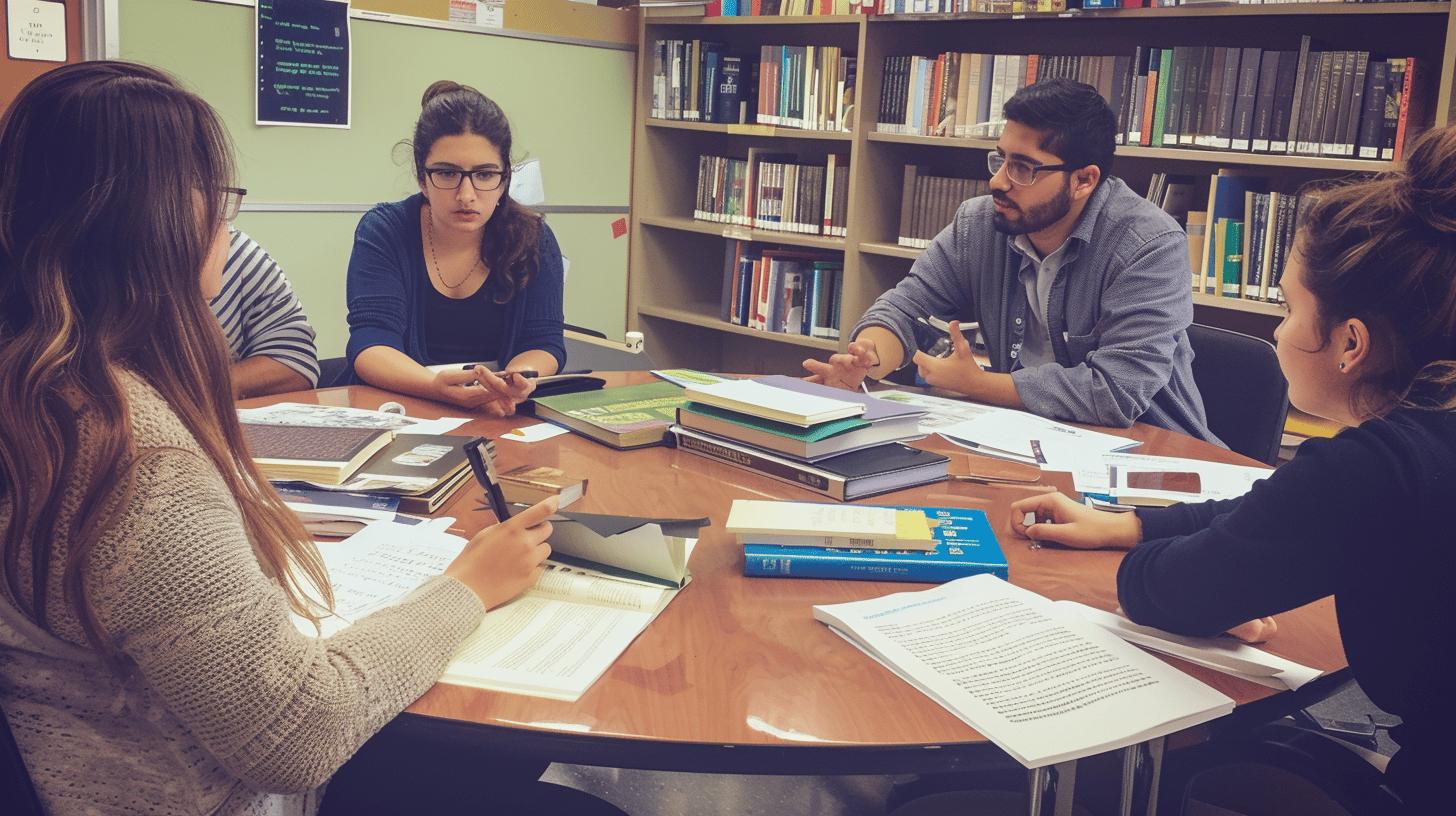Can a single connection really change the trajectory of your life? When it comes to developmental relationships, the answer is a resounding yes. These relationships, defined by their focus on growth and support, play a crucial role in educational, mentorship, and personal contexts. They are more than mere friendships; they are powerful bonds that cultivate success and resilience. In this article, you'll discover what makes these relationships so impactful and learn the key elements that can help you foster them in your own life. Ready to unlock potential? Let's dive in.
Understanding Developmental Relationships
Developmental relationships are connections that promote growth and development, particularly in educational, mentorship, and personal growth contexts. These relationships are vital for fostering personal and professional growth across various settings, including schools, workplaces, and families. By nurturing these bonds, individuals can develop essential skills and attributes necessary for success.
Five key elements define developmental relationships:
- Express Care: Show that the individual matters.
- Challenge Growth: Push the individual to keep improving.
- Provide Support: Help the individual complete tasks and achieve goals.
- Share Power: Respect and give the individual a say.
- Expand Possibilities: Connect the individual with new opportunities and ideas.
Framework for Developmental Relationships

The framework for developmental relationships, developed by the Search Institute, aims to provide a structured approach to fostering connections that promote growth and success. This framework identifies key elements that can be integrated into various environments such as schools, workplaces, and families to support personal and professional development. By following these guidelines, individuals and organizations can create nurturing relationships that encourage continuous improvement.
Psychological models and frameworks support the principles outlined by the Search Institute. These models emphasize the importance of mutual respect, trust, and a commitment to personal growth. The structured approach helps in developing resilience and improving social skills, which are essential for navigating life's challenges. By understanding and implementing these psychological principles, individuals can create an environment conducive to growth and development.
Academic research underscores the significance of structured developmental relationships. Studies have shown that these relationships can lead to increased resilience and better social skills. The research indicates that when individuals feel supported and valued, they are more likely to engage in activities that promote their development. This highlights the importance of creating frameworks that not only support but also challenge individuals to reach their full potential.
| Framework Element | Description |
|---|---|
| Express Care | Show that the individual matters |
| Challenge Growth | Push the individual to keep improving |
| Provide Support | Help the individual complete tasks and achieve goals |
The Importance of Developmental Relationships
Developmental relationships are crucial for promoting growth and development, especially in children and teenagers. These relationships go beyond simple care and involve nurturing the abilities needed to thrive in school and life. By fostering these connections, individuals can develop essential skills such as resilience, problem-solving, and emotional intelligence. This comprehensive support system helps young people navigate challenges and achieve their full potential.
Experts emphasize the importance of creating a supportive environment where individuals feel valued and motivated to improve. Such an environment encourages positive development and fosters a sense of belonging. When individuals know they are cared for and supported, they are more likely to engage in activities that contribute to their growth. This highlights the significance of developmental relationships in various settings, from family homes to schools and communities.
- Promoting growth and development.
- Nurturing abilities needed to thrive.
- Creating a supportive environment.
Building Developmental Relationships in Different Settings

Developmental relationships can be fostered in various settings, including schools, workplaces, and families. In schools, these relationships are crucial for a student's growth and development. Teachers who express care, challenge students to grow, and provide consistent support help create an environment conducive to learning. Encouraging students to share their opinions and offering opportunities for new experiences further enhance their development. By integrating these elements into daily interactions, educators can build strong, developmental relationships with their students.
In workplaces, fostering developmental relationships can lead to increased employee engagement and productivity. Managers and colleagues who actively listen, provide constructive feedback, and involve team members in decision-making processes create a positive work environment. Setting clear, achievable goals and recognizing individual contributions can help employees feel valued and motivated. These strategies not only enhance professional growth but also build a culture of mutual respect and trust.
Families play a pivotal role in building developmental relationships. Parents and caregivers who engage in active listening and offer support and guidance help children develop critical life skills. Setting realistic goals and celebrating achievements foster a sense of accomplishment and self-worth. Creating opportunities for family collaboration and empowering children to make decisions contribute to their overall growth and development. By prioritizing these practices, families can build strong, supportive relationships that nurture personal and emotional growth.
- Active listening.
- Providing constructive feedback.
- Setting clear, achievable goals.
- Creating opportunities for collaboration.
- Empowering individuals.
Practical Examples of Developmental Relationships
Developmental relationships can occur in various settings, including at home, school, community programs, and through interactions with peers, teachers, community leaders, and mentors. At home, parents and caregivers play a significant role in fostering these relationships by engaging in meaningful conversations and participating in activities that promote growth. Schools provide another crucial setting where teachers and staff can nurture developmental relationships by creating supportive and challenging learning environments. Community programs also offer opportunities for individuals to form connections that encourage personal and professional development.
Specific examples of developmental relationships include mentorship programs, where mentors help mentees set goals, navigate challenges, and explore new opportunities. Family activities such as game nights, collaborative projects, and open discussions can strengthen bonds and promote growth. School initiatives like peer tutoring, extracurricular clubs, and leadership programs offer students a chance to develop essential skills and build supportive networks. Community programs, such as youth groups and volunteer organizations, provide platforms for individuals to connect, share experiences, and grow together.
- Mentorship programs.
- Family activities.
- School initiatives.
- Community programs.
Final Words
Understanding developmental relationships is key for promoting growth and development. These connections are vital in education, work, and family settings, fostering personal and professional progress. By emphasizing care, support, and opportunity, we can build strong foundations for success.
The framework for developmental relationships, supported by psychology and academic research, illustrates structured approaches to nurturing resilience and skills. Whether in schools or workplaces, creating a supportive environment is essential.
Building developmental relationships through active listening, feedback, and collaborative goals can lead to improved outcomes. Embracing these strategies can significantly impact personal and professional development.
FAQ
What is a developmental relationship?
A developmental relationship is a connection that promotes growth and development. This often occurs in educational, mentorship, and personal growth contexts, helping individuals achieve their potential.
What are the 5 elements of a developmental relationship?
The five elements are:
- Express Care: Show that the individual matters.
- Challenge Growth: Push the individual to keep improving.
- Provide Support: Help the individual complete tasks and achieve goals.
- Share Power: Respect and give the individual a say.
- Expand Possibilities: Connect the individual with new opportunities and ideas.
What is the developmental relational theory?
Developmental relational theory explores how relationships foster growth. It highlights the importance of supportive and challenging interactions that contribute to personal and professional development.
What skills are important for developing relationships?
Key skills include active listening, providing constructive feedback, setting clear and achievable goals, creating opportunities for collaboration, and empowering individuals to make decisions.
What is the Developmental Relationships Framework?
The Developmental Relationships Framework, developed by the Search Institute, outlines structured relationships that support resilience and social skills. It is based on psychological models and academic research.
What are some examples of developmental relationships?
Examples include mentorship programs, family activities, school initiatives, and community programs. These examples help individuals build resilience and improve academic performance.
How do developmental relationships impact growth and development?
Developmental relationships promote growth by nurturing abilities needed to thrive in school and life. They create a supportive environment, making individuals feel valued and motivated to improve.


